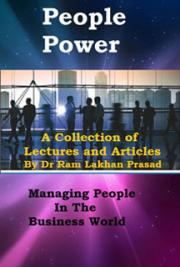Category 5: Relational Statements
Words that imply or describe a relationship.
Examples: keen, empathic, polite, social, open, erotic, present, reserved, competitive, lonely, affected, appreciative, together
Category 6: Emotions
Examples: anxious, guilty, happy, furious, pissed off, desperate, sad, funny, proud
Category 7: Cognitive or Technical Terms
Adjectives related to cognition (i.e., perception or thought).
Examples: pensive, resigned, perplexed, disappointed, vague, impressed, clever, traumatic, depressed, hysterical
Category 8: State of Being
Any word that implies an assessment of one's state and that cannot be categorized under Emotions, Cognitive or Technical Terms or Body Sensations.
Examples: apprehensive, pleasant, satisfied, finished, comfortable, strange, diffuse, cheerful, quiet
Principles of Evaluation and Group-Centered Work
As we have already made clear, our interventions in the training course were group-centered. That is to say, we placed particular emphasis upon group development, seeing it as a way of building self-confidence among participants. The following example illustrates the precise means by which we accomplished this.
During the second morning of the first module, we asked participants to describe their moods and dreams. Having spent the first day in small groups, punctuated by a number of mini-lectures, this was our first real opportunity to perceive and appreciate the women and their feelings. After the session, one of the group members approached us and asked if she could introduce a rule, namely that participants should avoid speaking, discussing or interpreting when another woman is making a statement. We took this as a reaction to the experience of having to deal with such a diverse group, as well as an attempt to provoke us into setting group norms and rules of behavior.
In our evaluation report, we described the group's mood as "immediately tensed" after the participant voiced her request. We responded to her by noting that there are as many opinions and perspectives on a given problem as there are women in the group, and thus that it behooves each member to decide for herself what feedback is helpful and what is not. Following this Sabine Scheffler and Agnes M uchele
133
intervention, a conversation ensued regarding the distinction between what might possibly be manipulative and what it means to be a mutual intluence.
The discussion became increasingly confused until there was no longer any scope for understanding. It was at this point that we decided to end the session: it was time.
In the seminars, participants continually expressed their disappointment with the fact that we were not more forthcoming with advice and opinions, and that all of our attention was directed towards their knowledge, their views and their possibilities. Even when we were engaged in dream work, the focus was always on the group's feelings, fantasies and associations. Thus, we were pleased when, during the course of the final module, several participants came forward to express their surprise at how far they had come in perceiving and appreciating their fellow group members, and how much they had learned from them. These comments were especially gratifying in light of the self-doubt, counter-transference and mood changes we had recorded in the evaluation reports, all of which we took to be indicative of our fear that we would be unable to meet the needs of participants. Of course, to a large extent we were merely reflecting the emotions of the group, who were constantly expressing their desire to "consume" our authority.
This meant, in effect, that we were often faced with participants who perceived our knowledge as more important or significant than that of the other group members, a problem that was especially marked during the supervisory elements of the course. Moreover, this in tum was exacerbated by the fact that we were not always successful in stimulating the women in their activities and reflections. We often reminded ourselves in the evaluation reports not to use the group like a stage (in the manner of gestalt therapy), but rather to focus upon developing a group-centered position. In the end we were somewhat successful in this regard, as attested to by the fact that the women were becoming increasingly active in their statements, in their personal presence, and in setting themselves apart from one another. We will relate another example in order to illustrate the dynamics of this process.
Relatively early on in the course, when we were at an emotional low point, both from trying to come to terms with a culture other than our own and worried that the project would fail to meet its objectives, we embarked upon a guided fantasy exercise to enhance personal power (Pendzik, 1996, p. 104).
Mter spending a period of time in small groups painting and visualizing, the participants reassembled, each identifying with the role of an imagined wise woman, so that the group became an assembly of wise women. At that moment, a shy, anxious group member came forward to take over the leading role, and initiated a feedback and sharing exercise. The group followed her in this, rendering our instructions and guidance supert1uous. We had not expected this woman, generally tradition-minded and reserved, to take charge 134 Assault on the Soul: Women in the Former Yugoslavia in the manner that she did. As we stated in our evaluation report, playing the role of the wise woman, she became iridescent and seemed to grow, adopting a tall, straight posture and occupying more physical space.
Evaluation Principles and the Use of Language
From Dependence to Independence
Participants' development in this regard can be traced through reference to the adjective categories "activities" and "emotions," with attributive descriptions changing as individuals' capacity to act and become more differentiated grew. In other words, our descriptions became less polarized (e.g., irritated, harassed behavior) in a manner that was reflective of growing self-confidence, competence and control on the part of group members. As is made clear in Table 1, this change was especially evident in the final module, when the score for activity statements (21.53 percent) was far higher than that registered in any of the earlier sessions. What makes this all the more remarkable is the fact that we had described the final weekend of the course as
"rather sluggish," with the topic "suicide and prostitution" proving too much for the women, although they had been in favor of including it in the syllabus.
A'i for adjectives related to "state of being" and "body sensations," we understand these to be indicative of the women's socialization and identity formation, with the body in particular becoming a container for tensions and conflicts. Thus, while the first module was rife with negative attributions (e.g., broken, exhausted, muted, scared), a discernible change was already evident by the time of the second (e.g., safe, well, contemplative, comfortable, relaxed), with the sense of release becoming even more palpable later on (attested to by the use of such adjectives as witty, humorous and silly).
From Needs to Resources
Along somewhat different lines, we also registered significant growth in the use of cognitive adjectives over the course of the training (from 7.1
percent in Module 1 to 15.38 percent in Module 6). As one might imagine, not only was this due to the development of a shared reference system, but also to the project's role in stabilizing participants' capacity to classify and regulate events, so that they no longer felt overwhelmed by them.
Significantly, change was also apparent in the use of adjectives denoting emotion, particularly at our final meeting and in those modules that dealt with self-experience. We would argue that this was suggestive of participants'
growing ability to perceive and accept their own emotional state of being.
Sabine Scheffler and Agnes Muchele
135
TABLE 1. Adjectives Used: An Overview
Categories
Modules
II
Ill
IV
v
VI
Modifiers
quantity
61
43
36
35
38
11
%
24.11
29.45
26.0
18.81
20.0
16.91
Value statements quantity
22
14
15
29
10
3
%
8.69
9.58
10.87
15.60
5.26
4.62
Body sensations quantity 30
13
19
18
27
2
%
11.85
8.90
13.76
9.67
14.21
3.07
Activity
quantity
26
17
20
27
19
14
%
10.27
11.64
14.49
14.51
10.0
21.53
Relational
quantity
38
11
14
21
24
10
statements
%
15.01
7.53
10.14
11.29
12.64
15.38
Emotions
quantity 21
17
9
11
21
12
%
8.30
11.64
6.52
5.91
11.05
18.46
Cognitive or
quantity
18
16
6
19
26
10
%
7.11
10.95 4.34
10.21
13.68
15.38
technical terms
quantity
10
11
13
%
4.9
5.91
6.84
State of being
quantity 27
16
19
15
12
2
10.67
10.96
13.77
8.07
6.31
3.08
TOTAL
253
146
138
186
190
65
Body sensations
and state of being quantity
57
29
38
33
39
4
23.45
19.86 27.53
17.74
20.52
6.15
Meanwhile, attributions denoting anger, aggression or annoyance were reflective of the women's ambivalence and frustration as they entered into the training course, feelings which were themselves derived from fears of helplessness and powerlessness, and guilt that their own lives were better than those of the refugee women with whom they worked.
Needless to say, we had prepared ourselves for the outward surge of emotions (remembering the phases of the mourning process) by maintaining a measure of distance between ourselves and the group. To our mind, the manifestation of greater emotional openness served as confirmation that our resource-oriented work had improved the participants' capacity for control, thereby reducing the anxiety they felt in being honest about their emotional state.
136 Assault on the Soul: Women in the Farmer Yugoslavia The Ambivalence Inherent in a Solidaristic Relationship
In this section, we address the use of adjectives falling under the categories of "relational statements," "value statements" and "modifiers." As Table 1
shows, the frequency of relational adjectives in particular was subject to considerable tluctuation over the course of the seminars. Not surprisingly, they were especially common during the first module, when we were struggling to make contact with participants, and the atmosphere was one of affection and dependence on the one hand, and criticism and claims-making on the other. In one case, a participant who was a physician was asked for her professional opinion on an issue that had just been raised. She refused, saying that she was there to learn.
The group was surprised and taken aback by the manner in which we sought to guide them, give instructions, and introduce order into the chaos.
Of course, our purpose in acting this way was to serve as models and to set boundaries, with the latter being particularly important in crisis management.
In subsequent modules, our description of the relationships became increasingly varied, itself a function of the growing salience of the supportive element in our interactions. Still, it should be emphasized that our leadership position was never called into question, except for challenges related to our seeming failure (in the eyes of participants) to set limits or cut off discussion.
As we already suggested, the pressure upon us to set limits was closely related to group members' desire that the "other one" regulate and impose conditions on their behavior.
Meanwhile, our use of modifiers and value statements in the reports serves
. to underscore very well the pressure and drive we were feeling from the group. Often during the breaks we would argue among ourselves concerning the "right" procedure or intervention, as the group listened with perked-up ears. Underlying these arguments, of course, was our sense of horror and fury at the injustice of the war, combined with feelings of self-doubt and unworthiness. Thus, it is not surprising that we tended to rate the working conditions as poor and the women as naive and non-feminist. However, even as we became increasingly morose in the face of our exhaustion and hopelessness, we sought to overcome our self-doubt by endeavoring to find value in the situation. The evaluation reports were of significant assistance in this regard, both as a way of protecting ourselves and helping us to avoid feeling overwhelmed.
Still, despite this sense of unworthiness, the modifiers used in the reports made clear "how very much," "how completely" and "how deeply" we identified with the project and its objectives, even if this identification was severely tested by the participants, the "others" who were judging us and our work. They were individuals with lifestyles very different from our own: heavily family-oriented, subject to a highly patriarchal gender order, and Sabine Scheffler and Agnes M uchele
137
leading lives circumscribed by the needs of their children, husbands and relatives. It was only because of the war that they had become conscious of patriarchy's deleterious effects, forcing them to come to terms with disillusionment and disappointment. Needless to say, it took considerable energy and tlexibility on our part to move away from our understanding of eman-cipation to the possibilities which they were willing to consider. We sought to highlight and discuss our differences, but at the same time we tried to encourage them to remain assertive and to retain the sense of power they had gained during the war. Moreover, it was precisely in this context that a space began to open for participants to give voice to their alternative biographies. For example, when one woman told the group that she lived alone, unmarried and without children, she was not criticized by other participants, but rather appreciated for who she was. Meanwhile, another woman came forward to say that, although her father had died during the war, she was not sorry and would never forgive what he had done to her family while he was alive.
Finally, a widow was able to talk to group members about her secret lover without risking their judgment. The time for secrecy was past; the creativity inherent in alternative life arrangements was exposed for all to see.
CONCLUSION
In this paper, we have used self-evaluation as a lens through which to assess the impact of a feminist training project we carried out in Croatia in 1995-97. We wanted to share with the reader the difficulties inherent in undertaking such a project in a country still reeling from the effects of war and deprivation. Of course, part of our purpose in going to the region at the time that we did was to bear witness to all that had happened during the war, though this was not our only reason; we also wanted to assist in the skill enhancement of local professional women. In either case, the building of trust was crucial to the success of the project, and we believe that a feminist psychotherapeutic approach provided an appropriate basis upon which to initiate change and recovery.
This view was confirmed by the case studies submitted at the end of the training course, in which participants documented their use of the course material in their own work lives. In a particularly telling case, one of the women reported that "I felt changes in myself and my attitude towards other women. To show weakness is human and helps to build rapport." She went on to describe the process which led her to this insight: Everything that came out of the group was important. Each woman was part of the process. The group had its own strength and energy; it was weak at the beginning, but grew increasingly capable of self-reflection.
Meanwhile, another participant commented, amazed, that topics were de-138
Assault on the Soul: Women in the Former Yugoslavia
veloped through body work and relaxation. "Mter the war, relaxation is a novelty." Needless to say, these statements by the women in their case studies have provided us with important feedback, all the while underscoring the fact that we were able to succeed in our aims, despite being "strange, foreign, feminist women."
While many of the topics that had been raised in the seminars came up in the case studies as well, among them guilt, loss, helplessness and fear of violation, a number of the women went on to illustrate how the trauma induced by sexualized violence can be made tolerable through storytelling.
This was also an important element in the training course as well, where it served either to promote or reinforce positive developments. Indeed, in this regard we cannot overstate how much we enjoyed the resounding vitality and friendliness of the women, and the warmth they showed us.
Finally, the project also confirmed in our minds the importance of difference to feminist theory and practice. That is to say, feminism can only gain by recognizing and celebrating the widely variable cultural contexts from which women emerge. We believe the training course gained by doing so, and we hope that our Bosnian partners share this belief as well.
REFERENCES
Benjamin, J. (1990). Die fesseln der liebe-The bonds of love. Psychoanalysis, Feminism and the Problem of Domination, Frankfurt, Stroemfeld/Roter Stern.
Bruckner, M. (1997). Wege aus der Gewalt an Frauen und Miidchen, Frankfurt: Fachhochschulverlag.
Graessner, S., Gurris, N., and Pross, C. (1996). Folter. An der Seite der Uberleben-den. Unterstiitzung und Therapie. Miinchen: A. Beck.
Herman, J.L. (1994). Die Narben der Gewalt, Frankfurt/Main: Kindler.
Laub, D. and Weine, S.M. (1994). Psychotherapeutische arbeit mit bosnischen fliichtlingen, In Psyche, Stuttgart: Klett-Cotta, Vol. 48, No. 12, p. 1101-1122.
Nadig, M. (1992). Der ethnologische weg der erkenntnis das weibliche subjekt in der feministischen wissenschaft. In Knapp, G. and Wetterer, A. (Eds.) Traditionen Bruche. Entwicklung feministischer Theorie, Freiburg: Kore, p. 151-201.
Pendzik, S. (1996). Gruppenarbeit mit mij)handelten Frauen. A manual. Miinchen: A.G. Spak.
Sander, H. and Johr, B. (Eds.) (1992). Befreier und Befreite. Miinchen: Krieg, Verge-waltigungen, A. Kinder.
Scheffler, S. and Miichele, A (1996). Nichts wird wieder so sein, wie es vorher war
... Ein Multiplikatorinnen-Training fiir die Arbeit mit Kriegsopfern (vergewal-tigten und Fliichtlings-Frauen) in Kroatien. In Lueger-Schuster, B. (Ed.) Leben im Transit. Ober die psychosoziale, Situation von Fluchtlingen und Vertriebe-nen. Wien: Wiener Universitaetsverlag, pp. 145-154.
Walker, L.E. (1979). The Battered Woman, New York: Harper & Row.
The Burden Left My Heart:
Psycho-Social Services
Among Refugee Women in Zenica and Tuzla,
Bosnia-Herzegovina During the War
Berit Schei
Solveig Dahl
SUMMARY. This paper presents psychosocial services for displaced women living in the war zones. Two study groups were formed from two cities in Croatia, Zenica and Tuzla. The services were designed to ameliorate distress and improve psychosocial functioning. A questionnaire-based evaluation indicated that highly distressed women derived greater benefit from group psychotherapy (Tuzla) than did the group Berit Schei, MD, PhD, currently holds the Atkinson Chair in Women's Health Research at The Centre for Research in Women's Health, Toronto, Canada. Solveig Dahl, MD, PhD, is at the Psychosocial Center for Refugees, Department of Psychiatry, Faculty of Medicine, The University of Oslo, Oslo, Norway.
The authors wish to acknowledge the following:
1. The women who shared with us their experiences under these difficult circumstances, both by completing the questionnaire and talking to us in person.
May their stories and courage live in our hearts as constant inspiration for our endeavors to create a better future.
2. The local staff for their initiatives, inspiring comments and practical support.
3. The Norwegian coordinators and the NPA staff in Norway, and particularly Liv Bremer, who chaired the program "Women: The Hidden Victims of War."
4. The Council of Mental Health in Norway.
Address correspondence to: Berit Schei, 790 Bay Street, Room 749, Toronto, Canada (e-mail: berit.schei@utoronto.ca).
[Haworth co-indexing entry note]: "The Burden Left My Heart: Psycho-Social Services Among Refu·
gee Women in Zenica and Tuzla, Bosnia-Herzegovina During the War." Schei, Berit and Solveig Dahl.
Co-published simultaneously in Women & Therapy (The Haworth Press. Inc.) VOl. 22, No. I, 1999, pp.
I 39- I 51; and: Assault on the Soul: Women in the Former Yugoslavia (ed: Sara Sharratt and Ellyn Kaschak) The Haworth Press, Inc., 1999, pp. 139-151. Single or multiple copies of this artide are available for a fee from The Haworth Document Delivery Service [1-800-342-9678, 9:00 a.m. · 5:00 p.m. (EST). E-mail address:
getinfo@haworthpressinc.com].
© 1999 by The Haworth Press, Inc. All rights reserved.
139
140
Assault on the Soul: Women in the Former Yugoslavia
who participated in occupational activities (Zenica).[Article copies available for a fee from The Haworth Document Delivery Service: 1-800-342-9678.
E-mail address: getinfo@haworthpressinc.com]
KEYWORDS. PTSD, psychosocial, trauma, war trauma
The war in Bosnia-Herzegovina started in April 1992 and brought great suffering and hardship to the non-combatant population. Not only were deliberate military attacks upon civilians and civilian areas common, but so were arbitrary arrests, arson, murder, torture, detention, executions, rape and sexual assaults, forcible removal, displacement and deportation.
According to the United Nations High Commission for Refugees (1994), roughly half the country's inhabitants were driven from their homes. Although many sought







